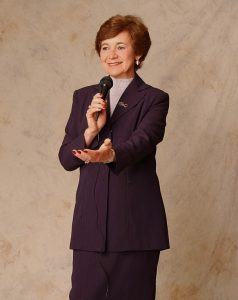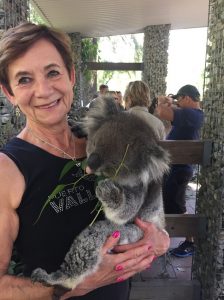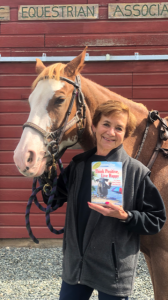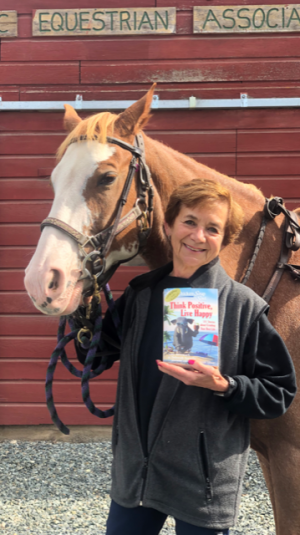The Journey to Healing by Frances McGuckin
Can you tell me a little bit about yourself?

I grew up in Melbourne, Australia, we immigrated from England when I was six. My dad made me quit school in Grade 11 to go to work and contribute towards the household.
When I left school, I worked in a series of office jobs, starting from proofreading and filing for the Yellow Pages (boring). I would change jobs in a variety of types of businesses, from manufacturing to working in a university as a secretary to a bunch of professors.
Each time I changed jobs, I aimed to learn more and get paid more. Along the way, I also learned sales and marketing plus learned more complex accounting. I was self-taught.
I came to Canada from Australia to marry in 1981, with my then 10-year-old son, Richard, to stay for just two years – but I never got back as the recession hit. I also had my daughter about 20 years after I had my son. My ex-husband and I separated in 2004 when my daughter was about 15 years old.
We sponsored my mom over here from Australia in 1987; she was 78 years old! I was her primary caregiver for 30 years until she died in early 2017. She was 96 when I had my accident and lived with us in her own little suite.
Then what happened?
I was in Richmond in my 1985 sports car going to dinner with a friend on July 13, 2005. A lady in an SUV ran a red light coming through a small side street onto a main street. She t-boned my car at about 70 km and I hit my head on the steering wheel (contra-coupe injury).
“A lady in an SUV ran a red light coming through a small side street.”
I remember that I was hit and briefly unconscious. Someone drove me home. I didn’t go to the hospital because physically, there were no visible injuries as I hit my brow area on the steering wheel. The next day is when it became real. I had horrible headaches and my body hurt all over from bracing and gripping the steering wheel so hard. The headaches became worse. I had a lot of physical pain.
The year before my accident, mom was in hospital with a suspected heart attack. I was caring for a rebellious teenage daughter, mom, a two-acre property with horses and animals, plus my professional speaking and writing business, with two books on their way to be published in the USA in spring, 2005. I then had to deal with all this and a serious contra-coupe traumatic brain injury.
What resources did you have and how did you find them?
After six months, my doctor referred me to a psychiatrist and he confirmed that I had mild TBI (traumatic brain injury). I later developed fibromyalgia, which is more than 11 points of pain. As I had a very high IQ, doctors, neurologists and even lawyers found it really hard to believe that I had a brain injury. I still have a lot of residuals from the incident and it has been 15 years!
“I had fibromyalgia, which is more than 11 points of pain.”
I am currently still suffering from panic and anxiety attacks. Even the slightest loud noise startles me. I suffered insomnia and when I wake up, it takes about quite a while to settle into the morning. A neuropsychiatrist diagnosed executive skills damage in late 2006. It wasn’t until late 2008 that lawyers sent me to speech therapy and the work we did there showed that I still had cognitive damage and that my executive skills weren’t as fluid as before (sequencing, technical and more).
“I am currently still suffering from panic and anxiety attacks.”
I saw doctors, neurologists, lawyers and sought mental health therapists when I was desperate. My lawyers sent me to a pain management counsellor and organized an in-home assessment for therapy but not until well after a year after the accident. I accessed the brain injury support in Sechelt in 2012, where I had one-on-one counselling for three years and they helped me with other resources. I also went to Langley mental health, desperate for free counselling, as we were now in debt.
It’s important to apply for disability benefits from Canada Pension Plan (CPP) or the provincial government as soon as you are diagnosed and cannot work. The forms are complex and you really need help to fill them in. I was also told that CPP often rejects you the first time and that you have to re-apply with more ammunition. Mine was rejected the first time. I recently learned that the brain injury associations may well be able to help you to navigate these hurdles and help you with your applications and letters of support if you are working with them. I didn’t know that when I had my accident.
“I got no help for a long time and got worse.”
I still had a nasty divorce case at the same time and had to change accident lawyers after a year, as they did nothing to help me. Meanwhile, my symptoms from the TBI kept getting worse. My case was resolved in 2009. It was horrific the way ICBC treated me as a criminal, not a victim.
How are you doing now? How are you managing your symptoms?
My first book, Business for Beginners, was self-published in 1997, then Big Ideas for Growing Your Small Business was published by McGraw Hill in early 2000. I studied speaking professionally and sold my accounting practice. My two books were published in seven languages, and in Spring, 2005, both were published in the USA. I was Google’s No. 1 “small business expert” and “small business author” from 2005-2007. Business for Beginners is still selling on Amazon worldwide! I had more book and North American speaking contracts when that woman hit my car. That was game over – for good.
I am now better able to multitask and can put a mean meal together and manage life in a simplified manner, as long as I plan well in advance. Routine is everything. I need to keep a routine and if anything upsets the routine, I will forget to do important things, like taking medication. I am still very prone to anxiety and panic attacks, but take no medication for the brain injury or depression and anxiety. I prefer more natural methods of tackling the residuals.
“I am better able to multitask… as long as I plan well in advance. Routine is everything.”
I am better now with loud but not sudden noises, as I go dancing with a group of friends but I still don’t like bright lights. I became somewhat dyslexic – my right is left and left is right; bad for a writer as words are often reversed. Don’t ask me for directions, although it’s getting somewhat better. My executive function motor skills still aren’t as fluid as they were.
It took me ten years of grieving and healing to come this far and I recently have had three short stories published in two Chicken Soup for the Soul books.
What is the one thing you would tell someone who knows nothing about ABI or just starting to learn about brain injuries?
Have patience, empathy and understanding. The person you knew is in there and screaming to be their old self. Love them, hug them, don’t ever desert them and don’t get angry with them. It isn’t their fault and they don’t have control over the things that they do or say. Their brain is broken and healing is a very slow process.

“Love them, hug them, don’t ever desert them and don’t get angry with them. It isn’t their fault.”
What would you have liked to do without the brain injury?
I was going global with my career which took a lifetime to achieve. I wanted to help more people through my speaking and writing and finally, that moment had arrived.
I would have loved to continue my work in helping women and small business owners worldwide to succeed and to write more books, as I had nearly signed a contract for another book. It was all taken from me in a split second.
What are you spending most of your time these days?

I have loved horses since I can remember; they were my escape from an abusive childhood, but we were poor, so I chased all over the suburbs to work at riding, trotting and dairy horse stables.
I was president and treasurer and secretary for our small strata from 2016-2018. They were very cruel to me over one event and it considerably set me back emotionally with serious depression.
I reached out to the Fraser Valley Brain Injury Association in the summer of 2018 for help. I turned to volunteering with Valley Therapeutic Equestrian Association about two years ago, working with special needs children and their horse riding lessons. I miss it terribly because of COVID.
I help some of the older neighbours. I do some editing and am writing a book on brain injury, although it’s stalled right now. I love my garden and grow a few vegetables and loads of flowers. My home keeps me busy. I walk every day and now my gym is closed, I do strengthening exercises at home to keep fit. I try to stay positive with this Covid new “normal” but it’s difficult. I have spoken once on mental health and it went very well, despite my anxiety over it. I would like to do more speaking about the topic… people need to know it’s okay to talk about it.
Last comments
I have learned that you may never be the same person you once were, and that you are allowed to grieve the loss of that person.
“There is no time limit to grief.”
Stop trying to be the old you and focus on healing. I learned that being negative, grieving and depression from the injury stopped me from moving forward and healing. Healing doesn’t take place in a negative mindset.
Your brain needs positivity and positive influences to heal. It will find a new way of doing things. I learned to love and accept the new “2.0, simplified version” of me and to let the old me go with love. That took a long time to learn. I have learned gratitude and patience, and to laugh at Me and I when “we” mess up. I learned that there are others worse off than me, and that I can be there to support and encourage them.
Reach out to your local brain injury association for support, guidance and help. They are awesome and there for you.
In my dear mom’s words (who lived to be 107.5 years old),
“I’m doing the best that I can with what I’ve got.”
**Story is interviewed, written and edited with the help of Ovey Yeung and Carol Paetkau, Fraser Valley Brain Injury Association

